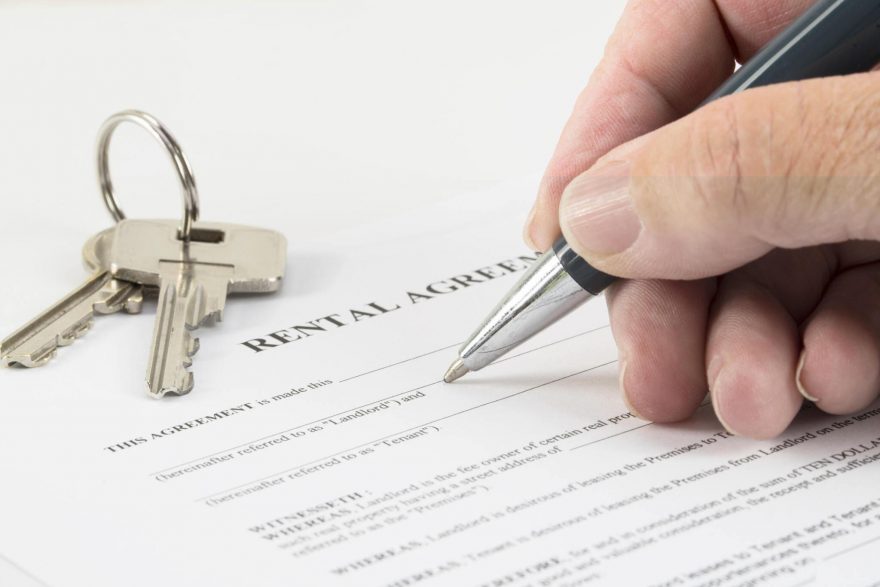SINCE 1988
203-546-7793

When it comes to commercial real estate for lease in Newtown, CT, fostering positive landlord-tenant relationships is essential for long-term success. These relationships can significantly impact lease renewals, tenant satisfaction, and property value. To achieve this, it’s crucial to implement eight key strategies.
Introduction
Key Takeaways
Benefits of Improve Landlord-Tenant Relationships
Frequently Asked Questions (FAQs)
✔ Open communication prevents misunderstandings and resolves issues effectively in commercial real estate for lease.
✔ Well-drafted leases clarify terms and expectations in landlord-tenant relationships.
✔ Timely responses from landlords maintain a positive leasing environment.
✔ Regular upkeep ensures tenant satisfaction and property value in commercial real estate for lease.
✔ Value-added services enhance tenant experiences in commercial real estate for lease.
✔ Offering adaptable leasing options to suit diverse tenant needs and market conditions.
✔ Efficient resolution prevents conflicts from escalating in commercial real estate for lease.
✔ Transparent finances build trust, inform decisions, and foster positivity in leasing.

In commercial real estate for lease in Newtown, CT, clear and effective communication between landlords and tenants is the bedrock upon which successful relationships are built. The ability to convey information, expectations, and concerns openly can significantly impact the leasing experience, tenant satisfaction, and overall property performance.
Now that we’ve established why clear communication is essential let’s explore strategies that can be employed to achieve it effectively:
In commercial real estate for lease, lease agreements are the contractual foundation upon which landlord-tenant relationships are built. These agreements set the terms, conditions, and expectations for both parties, playing a pivotal role in ensuring a harmonious and productive leasing experience.
Creating well-defined lease agreements is a fundamental aspect of landlord-tenant relationships in commercial real estate for lease in Newtown, CT. Here are some strategies to help you craft these agreements effectively:

In commercial real estate for lease, responsiveness is a critical factor that can make or break landlord-tenant relationships. The ability to promptly address tenant concerns, requests, and issues is not only a hallmark of excellent property management but also a key driver of tenant satisfaction and retention.
To excel in responsiveness within the world of commercial real estate for lease, landlords can adopt the following strategies:
Maintaining a well-kept and safe commercial property is paramount in the competitive world of commercial real estate for lease. Property maintenance not only preserves the physical condition of the premises but also contributes significantly to tenant satisfaction and the overall value of the property.
To excel in property maintenance and ensure that your commercial real estate for lease property remains in optimal condition, consider the following strategies:
In commercial real estate for lease, offering tenant services can be a game-changer for landlords. Beyond providing functional spaces, offering valuable amenities and services can enhance tenant satisfaction, attract new occupants, and contribute to the overall success of your property.
To effectively implement tenant services within your property, consider the following strategies:

In commercial real estate for lease, flexibility is a key driver of success for both landlords and tenants. The ability to adapt to changing circumstances, market trends, and tenant needs is essential for maintaining strong landlord-tenant relationships and ensuring the long-term viability of your property.
To effectively implement flexibility within your commercial real estate for lease property, consider the following strategies:
In commercial real estate for lease, disputes are an inevitable part of landlord-tenant relationships. How these disputes are handled can significantly impact the success of your property and the satisfaction of your tenants. Effective dispute resolution processes not only prevent conflicts from escalating but also contribute to a positive and productive leasing environment.
To implement effective dispute resolution strategies within your commercial real estate for lease property, consider the following approaches:
In commercial real estate for lease, financial transparency is a fundamental principle that underpins trust and collaboration between landlords and tenants. Providing tenants with clear and accessible financial information about their lease agreements and property expenses is not only an ethical practice but also a strategic advantage.
To implement effective financial transparency practices within your commercial real estate for lease property, consider the following strategies:
In commercial real estate for lease, the success of a property hinges not only on its physical attributes but also on the quality of the relationships between landlords and tenants. Strong, positive landlord-tenant relationships can be a cornerstone of success in the industry.
Strong and positive relationships with tenants in commercial real estate for lease often translate into higher tenant retention rates. Tenants who have a good rapport with their landlords are more inclined to stay longer when their leases come up for renewal. This continuity benefits both parties: landlords can avoid the costs and efforts associated with finding new tenants, while tenants can maintain the stability of their business operations in a familiar location.
A property known for its harmonious landlord-tenant relationships can gain a positive reputation in the competitive commercial real estate for lease market. Word of mouth travels fast, and businesses seeking to lease space are more likely to choose properties with a track record of supportive and cooperative landlords. A positive reputation can lead to increased demand for your property, allowing you to charge higher rents and maintain a lower vacancy rate.
Improving relationships with tenants fosters open and effective communication channels. When tenants feel comfortable approaching their landlords with concerns or requests, it leads to a more timely resolution of issues. Clear and efficient communication can prevent misunderstandings, reduce disputes, and contribute to a smoother overall leasing experience within the context of commercial real estate for lease.
When tenants have a positive and respectful relationship with their landlords, they are more likely to comply willingly with the terms of their lease agreements. This includes adhering to payment schedules, abiding by property rules and regulations, and properly maintaining their leased spaces. Improved lease compliance not only reduces potential legal disputes but also ensures a more stable and secure income stream for landlords in the world of commercial real estate for lease.
Satisfied tenants who enjoy positive relationships with their landlords are more likely to recommend the property to other businesses looking for commercial real estate for lease. Tenant referrals can be a valuable source of new occupants, saving landlords marketing costs and expediting the leasing process. It also reflects the confidence tenants have in the property and the landlord, which can be a powerful selling point in a competitive market.
If you come across a maintenance issue in your commercial real estate for lease property, the first step is to promptly notify your landlord or property management. Effective communication is key to ensuring that the issue is addressed in a timely manner.
If you believe certain lease terms need adjustment, such as lease duration, rent structure, or maintenance responsibilities, communicate your proposed changes to the landlord clearly and respectfully. Be prepared to discuss the reasons for your request and consider the potential impact on both parties.
Tenant workshops and informational sessions in commercial real estate for lease properties offer tenants valuable insights into property operations, lease terms, and best practices. By participating in these sessions, you can gain a better understanding of your rights and responsibilities as a tenant.
Yes, commercial real estate for lease properties often offers short-term lease options to accommodate businesses with varying needs. Short-term leases can range from month-to-month agreements to annual contracts. They provide flexibility for businesses that may be in a growth phase, testing new markets, or requiring temporary space.
Auditing financial records related to your lease agreement in a commercial real estate lease property is an important aspect of ensuring financial transparency. To exercise this right, typically outlined in your lease agreement, you can request access to relevant financial documents and records.
Remember that these relationships are built on clear communication, transparent financial practices, and responsive support. In your pursuit of success in Newtown, CT’s commercial real estate for lease market, there is a partner you can trust – Tower Realty Corp. Our commitment to transparency, flexibility, and tenant satisfaction sets them apart in the industry. Contact us today and embark on a leasing journey that promises prosperity and growth.